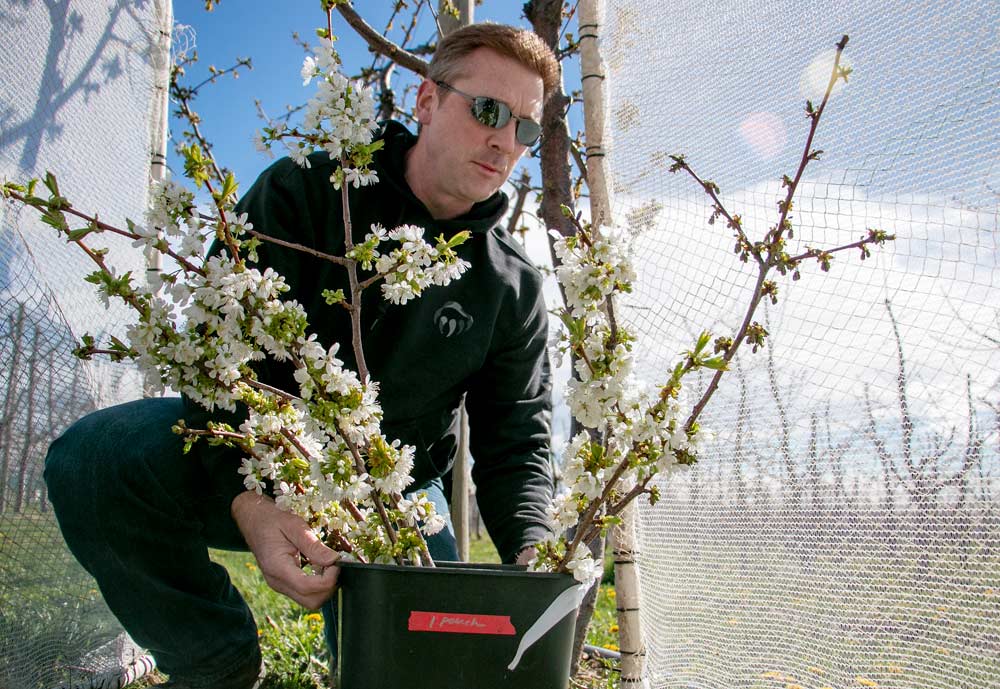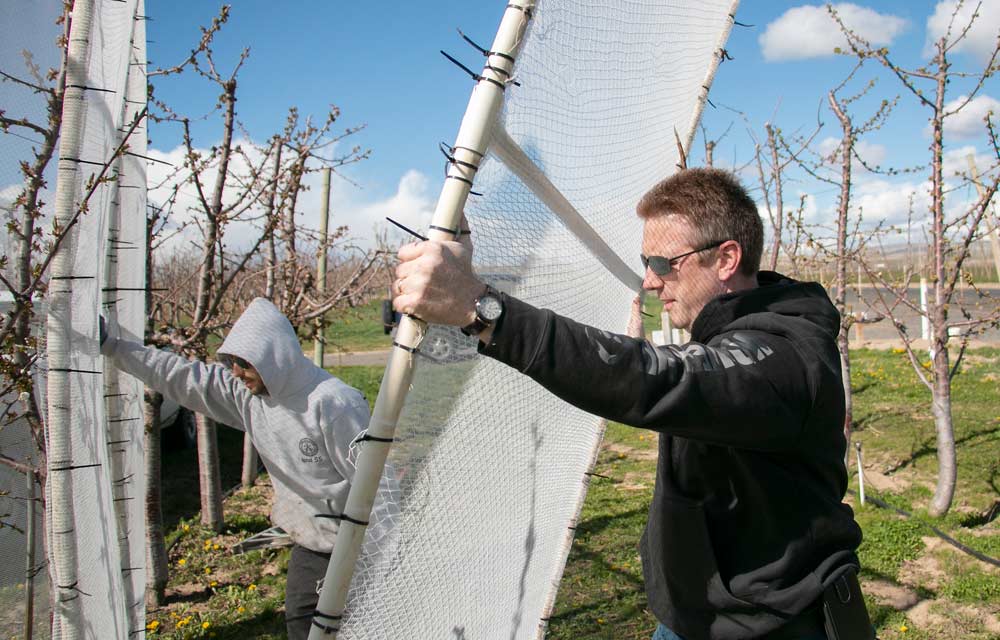The first thing you need to know about Washington State University’s new cherry breeder Per McCord is that his name is pronounced “Pear,” like the fruit he is not breeding. After that, you should know that he wanted to become a plant breeder since roughly age 12, before he really knew what a plant breeder was.
He inherited a green thumb from his grandmother, gardening and perusing flower bulb catalogs as a boy growing up in Seaside, Oregon. He also devoured a National Geographic article about DNA and a book about Luther Burbank, the American botanist and pioneer in agricultural science, and found his calling early.
“I thought, ‘Wow. I want to do that. I want to make new varieties of plants,’” McCord said.
McCord arrived in early April at WSU’s Irrigated Agriculture Research and Extension Center. He now heads the beleaguered stone fruit breeding program, essentially on hold since early 2016 when predecessor Nnadozie Oraguzie stepped down.
McCord hopes to make new varieties of cherries. His target sweet cherry traits are early and late season maturity, large fruit and firmness.

Washington State University’s new cherry breeder Per McCord at the Irrigated Agriculture Research and Extension Center. (Ross Courtney/Good Fruit Grower)
McCord, who spent the last five years as a sugar cane research geneticist in Florida for the U.S. Department of Agriculture, has already begun cross-pollinating some experimental varieties, but since new fruit varieties take upward of 20 years to develop, he plans on mostly housecleaning tasks early in his tenure at WSU. He has three main goals for his first year on the job.
—Develop a relational database that chronicles all the work done before he arrived. Several yet-unnamed varieties had reached Phase 2 replicated trials and had shown promise. He wants to create a digital vault that keeps information about all those traits at his finger tips, a time-consuming chore. “I know that doesn’t sound very glamorous but it allows you to track the performance of a potential new variety very powerfully,” he said.
—Gather and document more data from the existing Phase 2 and Phase 1 seedling trials.
—Produce a new crop of seedlings from crosses made with desirable parents.
McCord has worked before at the WSU station in Prosser where he spent several years working with alfalfa and potatoes as a postdoctoral student. Then, it was off to Canal Point, Florida, for sugar cane.
McCord believes his experience with sugarcane will help him manage the cherry breeding program. For one thing, sugarcane only flowers once a year, like cherries, so planning ahead is essential.
“You get one shot a year basically,” he said. Also, sugar cane is a big plant requiring a lot of physical labor, just like cherry trees.
One of his tertiary excitements for being back in Prosser is the chance to work with graduate students. He did not get to do that much in Florida.

Per McCord, Washington State University’s new cherry breeder, places cuttings of Glacier buds inside a cage containing the experimental variety FR8T6 in April at the Roza test blocks north of Prosser. The variety Glacier is known for big fruit and self-fertilization, traits he hopes the progeny of the cross will develop. Helping him with the cage is Alex Gonzalez, a research assistant at WSU-Prosser.
(Ross Courtney/Good Fruit Grower)
McCord earned his bachelor’s degree from Brigham Young University, and his master’s and doctorate degrees from North Carolina State University in Raleigh. He previously worked with the genetics of raspberries and peaches during his studies.
McCord and his wife, Julie, a linguist, have five home-schooled children. His hobbies include playing piano, weightlifting and target shooting. •
—by Ross Courtney






Leave A Comment